August Gardening Tips and To-Dos for the Pacific Northwest
Looking for ways to keep your summer garden productive and healthy while starting to prepare for the fall season? I’ll show you some August gardening tips and to-dos for your Pacific Northwest garden that will give you the best results for setting your garden up for success.
Our PNW gardens are in full bloom in August, thriving from the sunny days and warm weather. I’m enjoying the garden’s summer flowers and gorgeous greenery so much right now.
With the excessive heat, paying close attention to the garden’s needs is a priority. This is also a great month to plan for the coming months.
In this post, I’m sharing best practices and gardening to-dos for the month of August in the Pacific Northwest (PNW) region. Use these tips for a beautiful and healthy garden through early fall and to prepare for the next year’s garden.
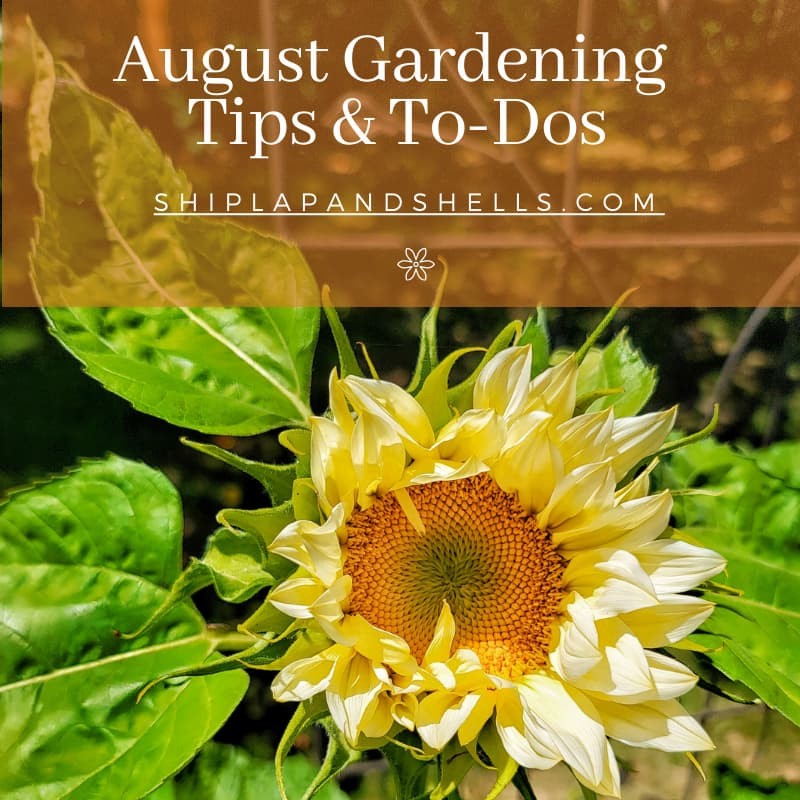
As an Amazon affiliate, I earn from qualifying purchases at no extra cost to you. My blog contains other affiliate links for your convenience as well. Click here to read my privacy policy.
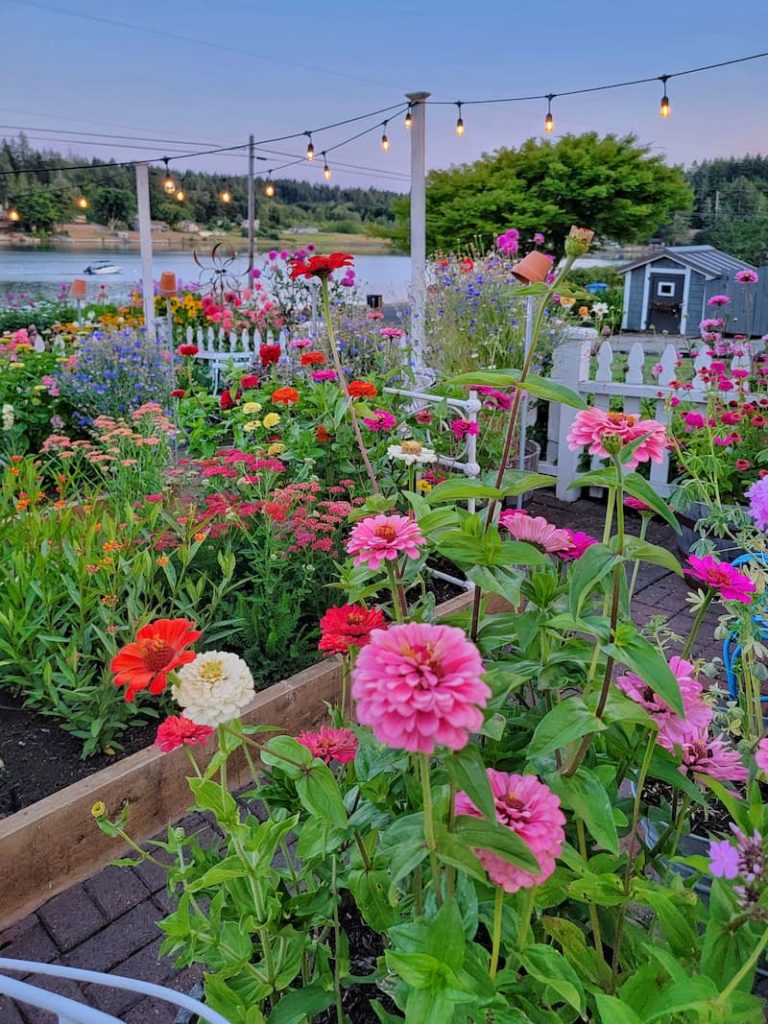
August Gardening Tips for the Pacific Northwest
At the start of August, the summer garden is in full swing, so it’s time to start fall crops, water plants deeply, and try to control weeds, pests, and diseases.
These August “gardening by month” tips will help your garden thrive in the fall. The tips I share are based on hardiness zone 8b, so be sure to check your own gardening zone and make the necessary adjustments to this month’s timeline.
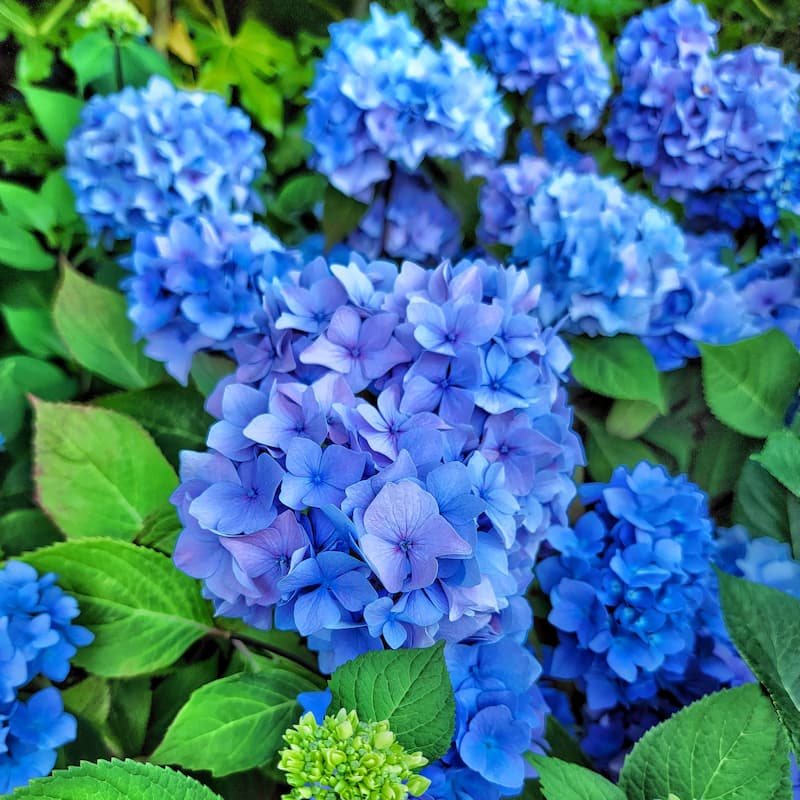
Keep Your Garden Hydrated in Hot Weather
Watering your garden properly is crucial as the heat continues this time of year. In dry weather, deeply water the flower beds and vegetable patches to reach the plants’ roots.
The best time to water plants is early morning or late evening to minimize evaporation. Ensure your garden receives the moisture it needs for the flowering season, especially for perennial plants, tomato plants, and newly added summer flowers.

If you have to water in the evening, try to water directly into the roots and avoid getting any foliage wet to avoid fungus or powdery mildew.
Flower containers, window boxes, and hanging baskets dry out quickly in summer. Be sure to water them daily to keep your flowers hydrated and twice a day when it’s hotter and windier than usual.
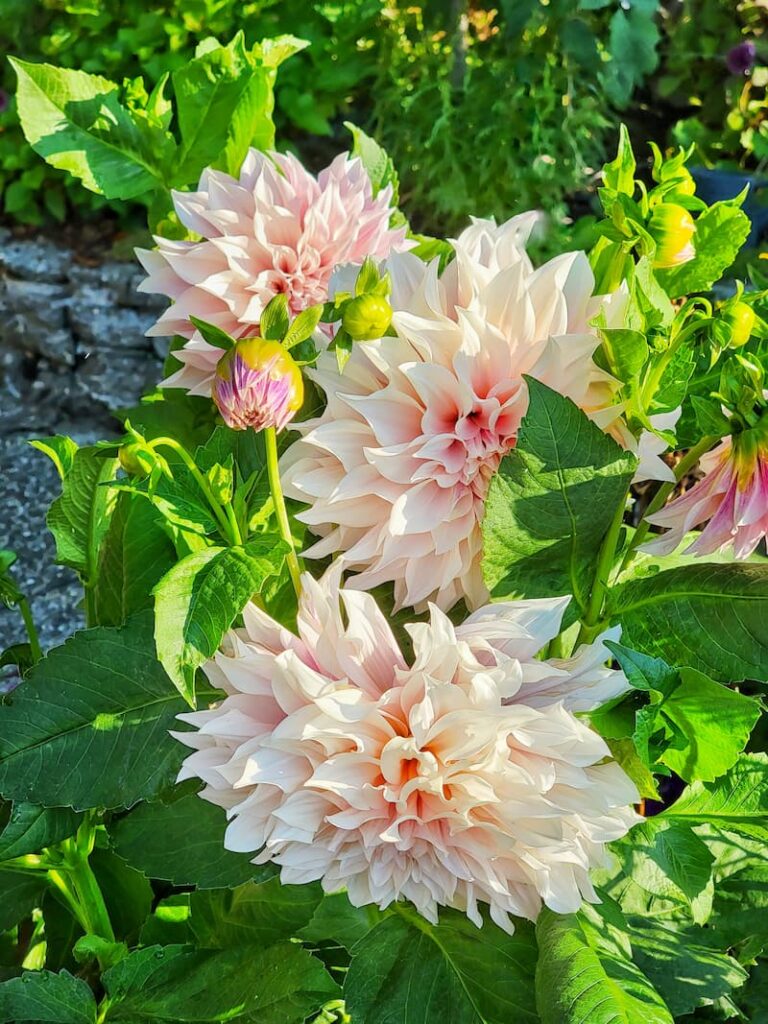
Perennial and Annual Garden Maintenance
Divide Perennial Plants
August is the perfect time to divide daylilies and other perennial plants. Dividing daylilies helps rejuvenate the plants, promotes healthier growth, and encourages more abundant blooms next year.
Deadhead Your Spent Blooms
Trim back spent blooms from annual and perennial flowering plants regularly and remove lower leaves affected by powdery mildew, such as dahlias.
Deadheading is the removal of dead flower heads from a plant to encourage growth by putting more energy into blooms for the remainder of summer.
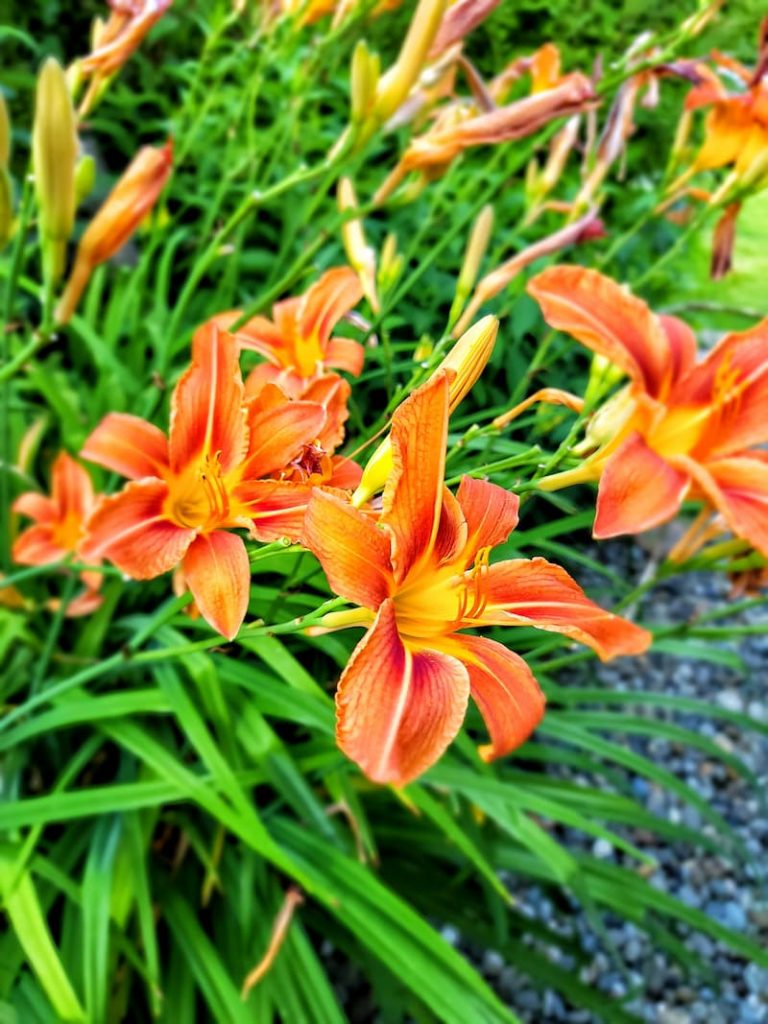
Cut back daylilies after they have gone dormant. If the lilies are pruned to the ground in the summer, they can usually grow back once the temperatures cool and bloom again during the fall season.
You should divide your daylilies at least every 4-5 years.
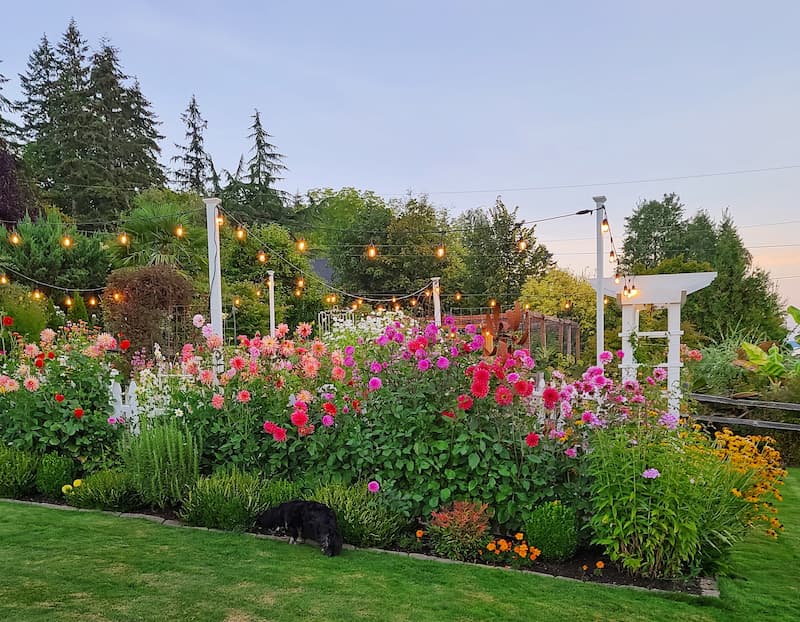
Support Tall Garden Flowers
If you haven’t already, support tall flowers such as dahlias, snapdragons, and sedum autumn joy to protect them from damage due to…
Keep Weeds Under Control
Keep up on weeds in the garden in August so they don’t steal water and nutrients from other plants in your garden.
Pulling weeds if wet after a rain storm or watering them deeply before the task can be much easier. If you can’t get to weeding right away, cut off the heads of the weeds to keep them from going to seed.

Prune & Cut Back Garden Shrubs and Plants
August is a good time to prune back any dead growth or diseased areas to help prevent further disease from spreading to the plant.
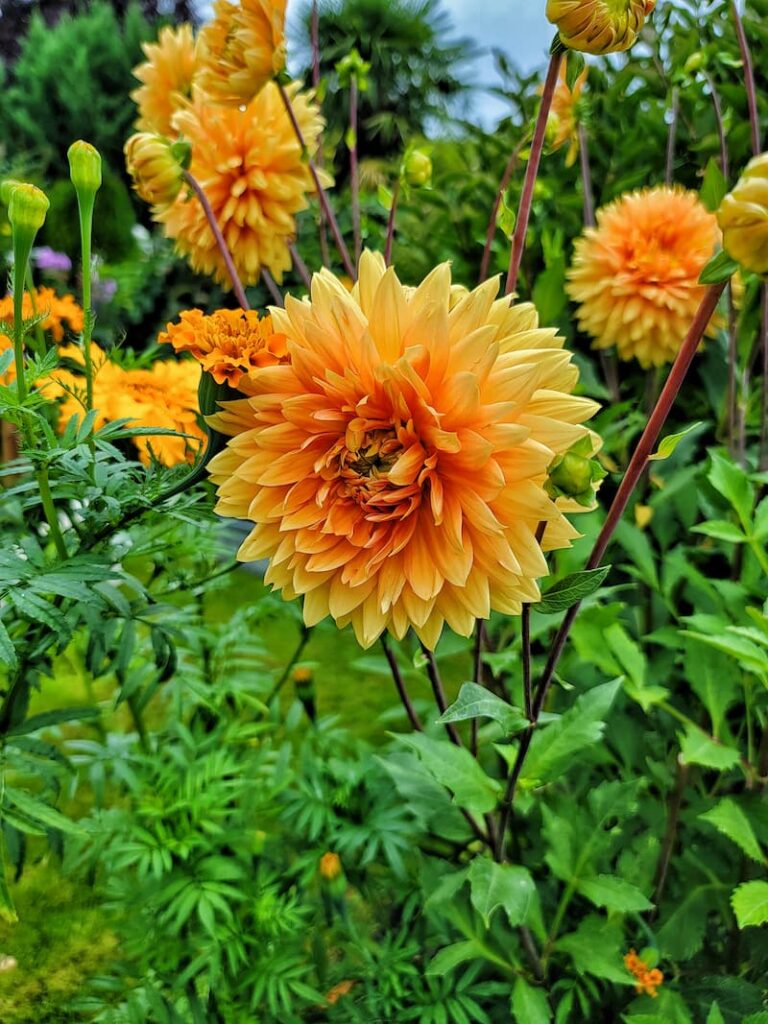
Preparing for the First Frost
As late summer approaches, August is the right time to plan for the first frost.
Keep an eye on the weather forecast and determine the average time of year when the first frost typically occurs in your area. Use this information to gauge when to start transitioning your garden for the fall.
Harvest any remaining summer crops at their peak ripeness for the best results.
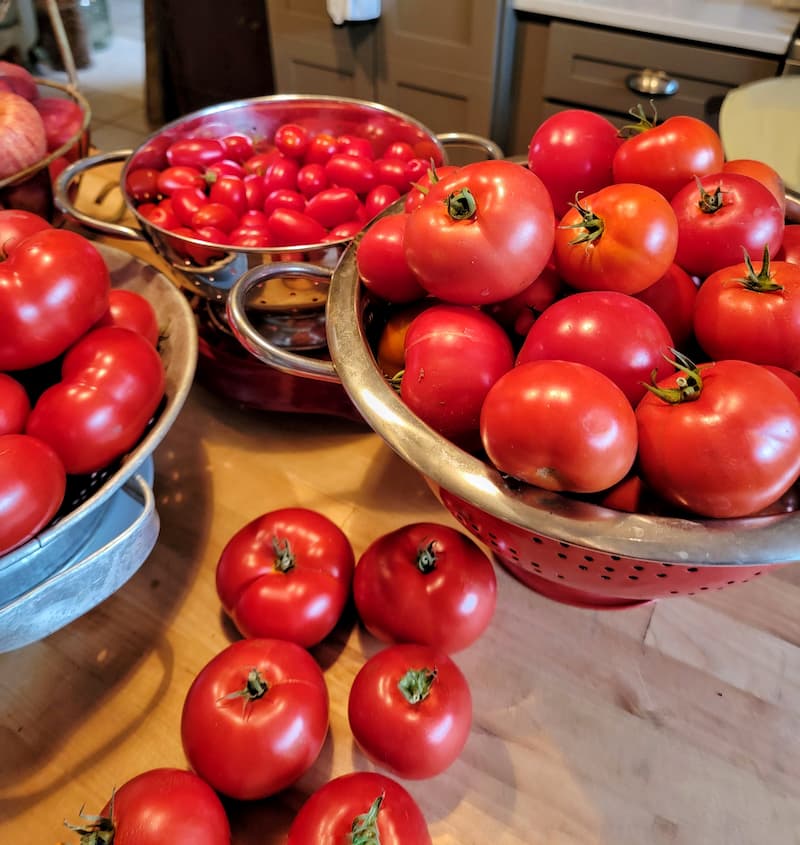
Harvest Fruits, Vegetables, and Flowers
August always brings abundant ripe fruits and vegetables and beautiful blooms to harvest. The morning is the perfect time to harvest your ripe fruits and vegetables and garden flowers when the temperatures are cooler.
Picking fruits, vegetables, and flowers benefits your garden by…
Harvest leaf vegetables before they bolt and become bitter.
Pick onions when the tops start to fall over. Stop watering onions when the stems turn yellow to force them into dormancy.
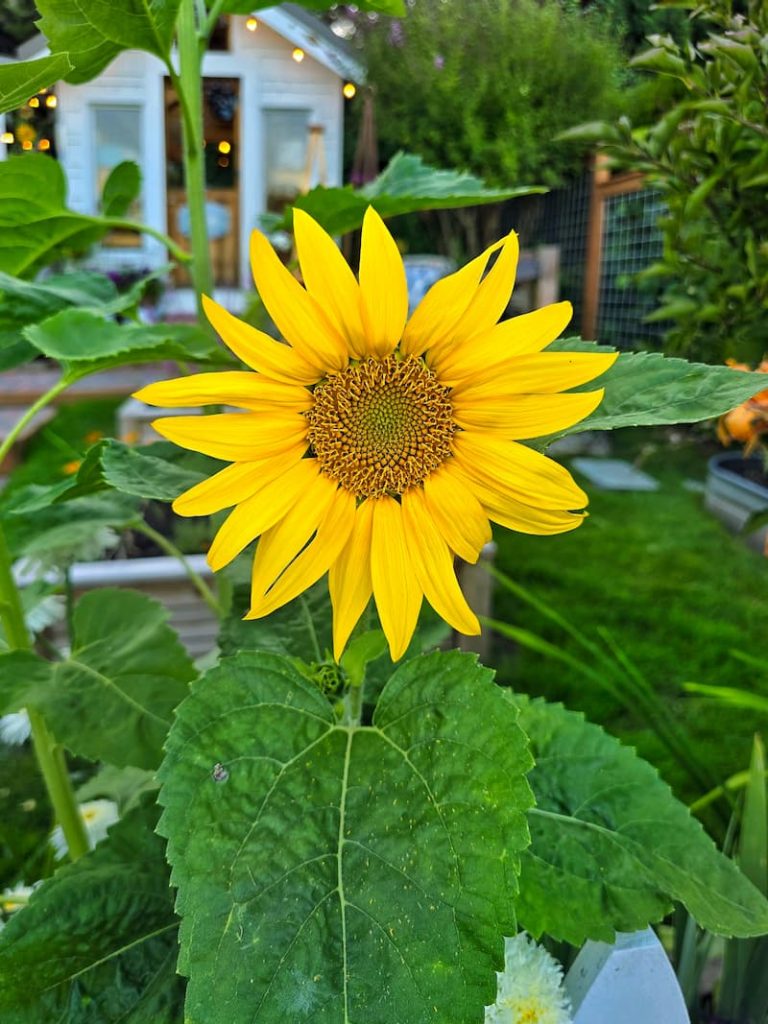
What to Plant in the Garden in August
Take Advantage of Summer Plant Sales to Fill in Bare Spots
The end of August is an excellent time to visit garden centers and nurseries in your area. They often offer discounts on summer plants, making it a great way to find bargains on new plants for your garden.
Look for plants thriving in your hardiness zone and the PNW climate throughout the following year.
Take a look at your flower beds and evaluate areas with bare spots. Plant new perennials to fill in these gaps. By planting now, you give the new plants ample time to establish their root systems before the onset of early fall.
Direct Sow Cool-Season Veggies
For the vegetable garden, consider planting cool-season vegetables that thrive in the early fall in August, such as leafy greens and certain root vegetables.

Order Spring Bulbs to Plant in the Fall
It’s not too early to order your spring bulbs in August. Many of the favorite varieties sell out quickly, and the bulbs will be delivered when they should be planted in your hardiness zone.
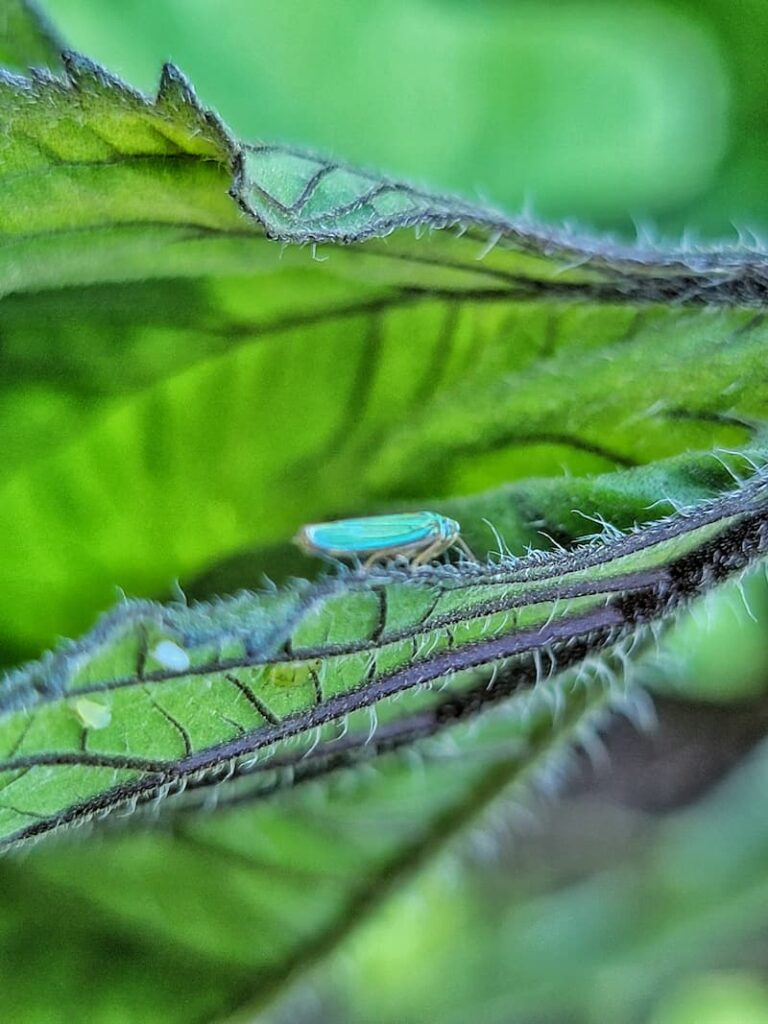
Control Pests and Diseases in the Garden
Pests
Pests can be their worst in August.
Slugs thrive in moist areas of the garden. Some places I look for these pests are under rocks and flower containers, in overgrown vegetation, and even under large leaves. They generally hide during the day but come out full force in dark evenings.
Continue applying slug bait to areas in the garden where the slug’s favorite flowers are dahlias, zinnias, and marigolds. I use Sluggo, which is safe for pets and wildlife.
Other slug-killing methods include a small container of beer, an evening of slug hunting with a flashlight, and your favorite slug-killing tool,
Use a hose water spray or insecticidal soap spray to keep aphids, spider mites, and other sap-sucking pests from your favorite flowers. I use this insecticidal soap spray.
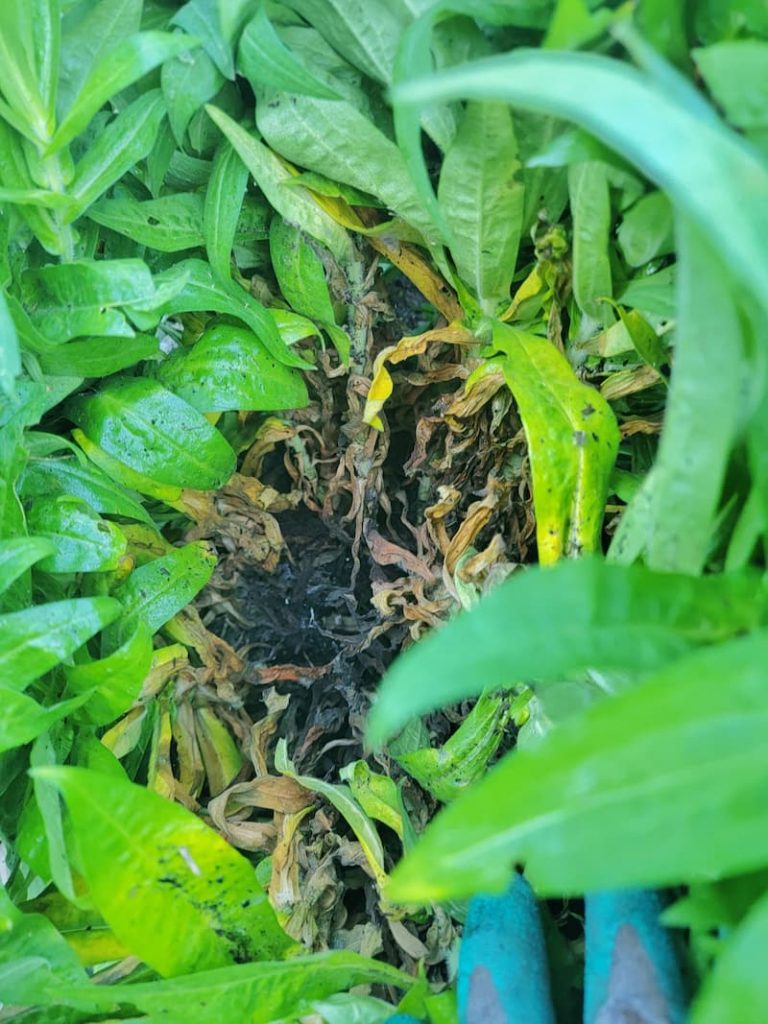
Diseases
Plants are much more prone to diseases in the hot weather and humid summer months, so inspect them regularly. Remove any diseased foliage and dispose of it (never compost) so it doesn’t spread to the rest of the plant.
Always wash and disinfect pruners and other tools that have been in contact to avoid spreading diseases.
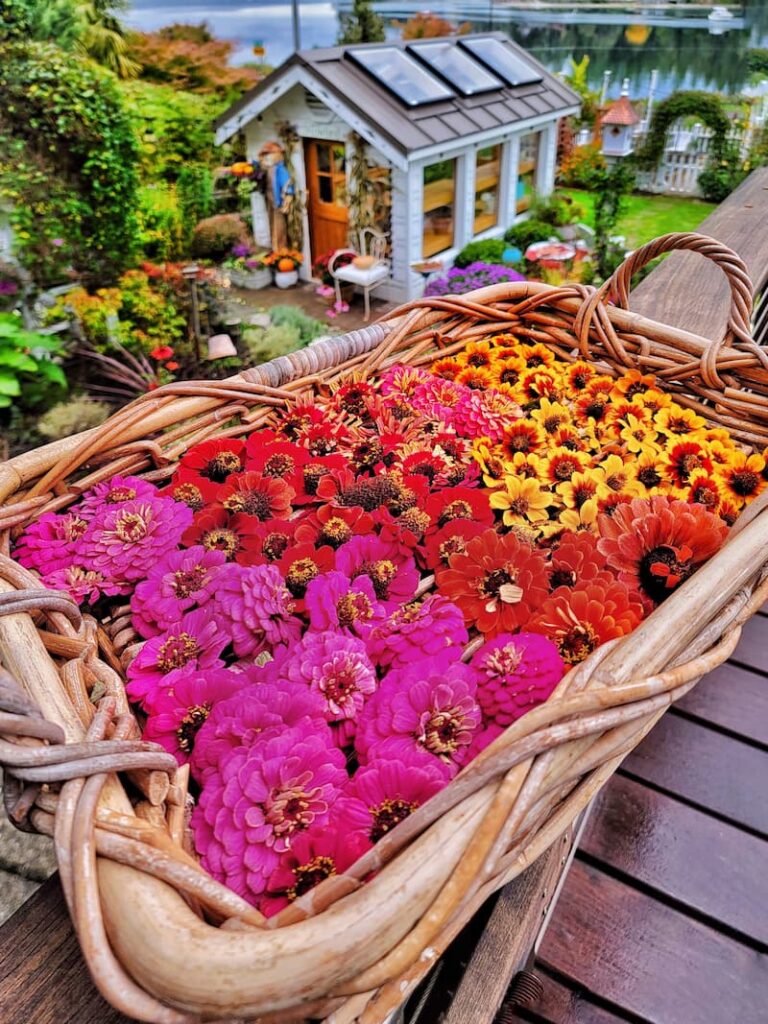
Collect Seeds from This Year’s Garden for Next Spring
You can save seeds from many plants you grew this summer to sow for next year’s garden. This has worked out well for me because, a few times, when I loved a certain cut flower, but the variety was no longer available.
Open-pollinated plants and heirlooms are the best for saving seeds because the seeds usually grow into plants that look like the parent plants.
My friends and I often swap seeds, which reduces the cost of buying seed packets each year.
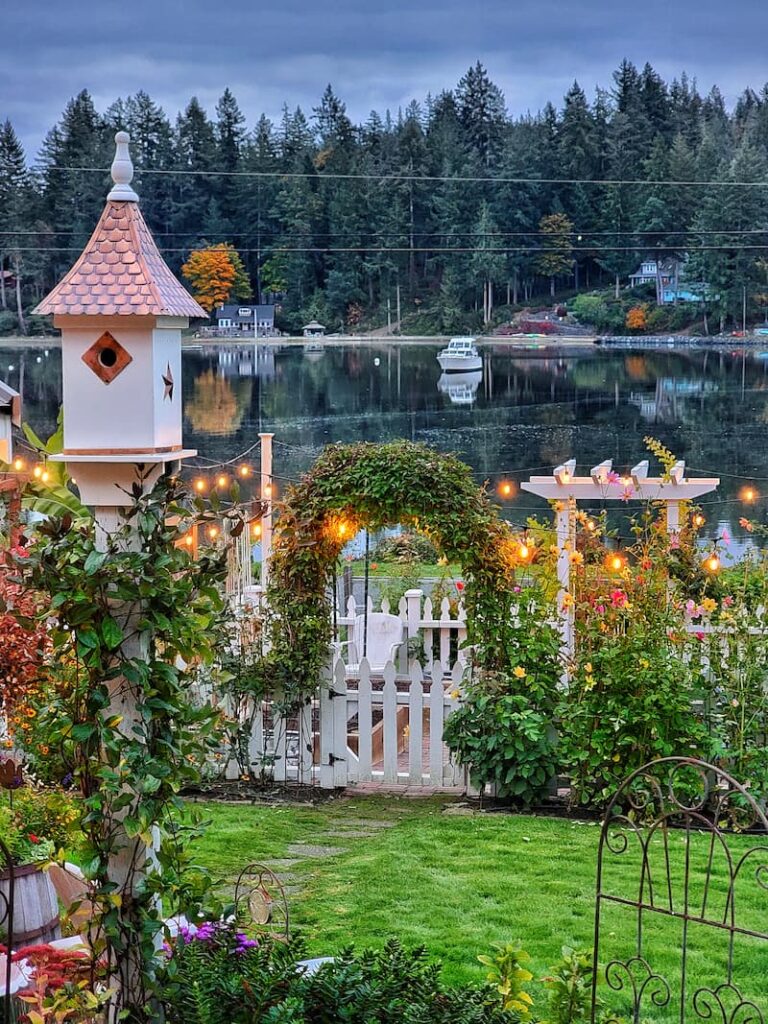
Welcome the Garden Birds and Summer Wildlife
With the warm weather in August, many garden birds and wildlife will frequent your garden. Create a welcoming environment by providing bird feeders, bird baths, and native plants that attract local wildlife.
Clean Water Features
Standing water allows mosquitos to breed, so clean those dirty bird baths and fountains this month.
Garden Supplies and Tools
Check out my favorite garden supplies and tools for the growing season. Whether you’re looking for potting soil or deer repellent, you’ll find what I use in my own garden.
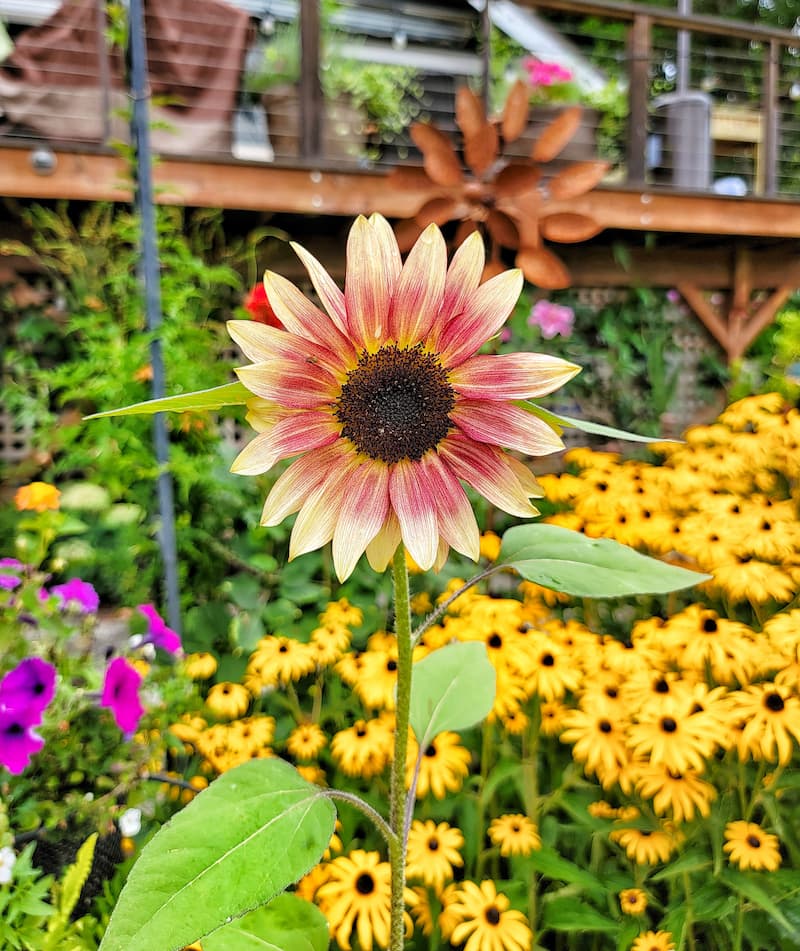
Common Questions About Pacific Northwest Gardening in August
What are Some Essential Gardening Tasks to Focus on in the Pacific Northwest in August?
It’s important to water your garden regularly in August, divide daylilies and perennials, plan for the first frost, and prepare for the fall harvest.
Can I Still Plant New Plants in My Garden in August?
You can plant new perennials and cool-season crops that thrive in the early fall. Planting now gives them time to establish before the colder months.
How Do I Deal With Powdery Mildew on My Plants in August?
To combat powdery mildew, remove affected leaves promptly, increase air circulation around plants, and avoid overhead watering. Applying fungicidal sprays may also help prevent further spread.
Are There Specific Plants That Attract Garden Birds in August?
Yes, you can attract garden birds by planting native plants that produce berries or seeds and providing bird feeders and baths filled with fresh water.
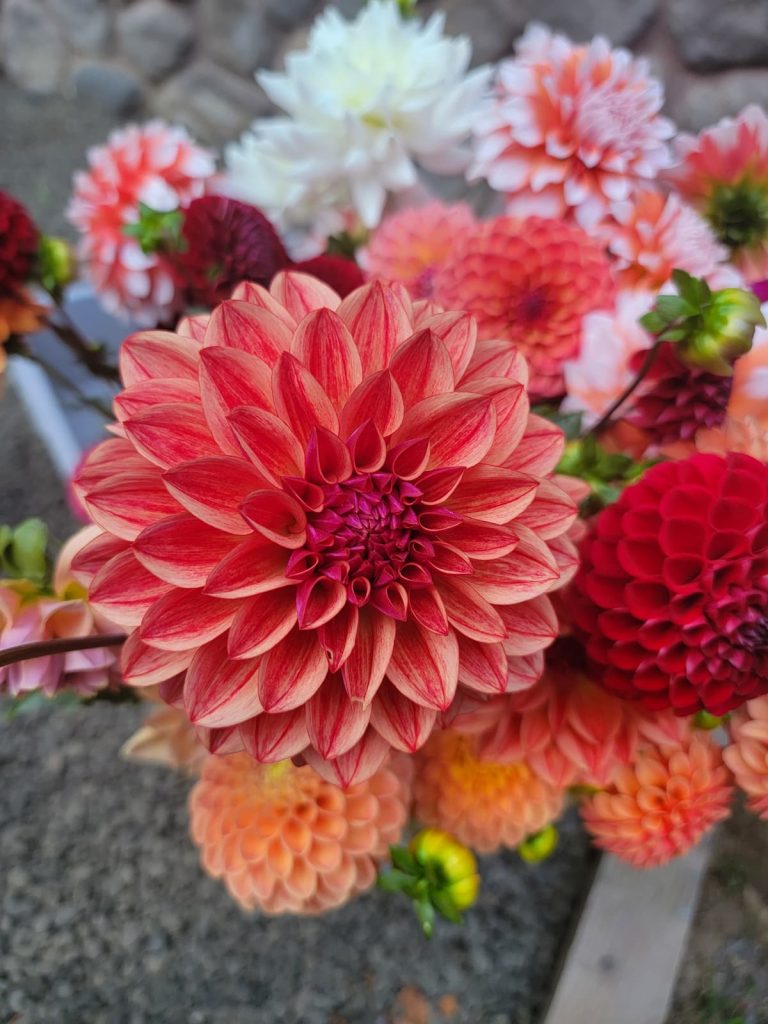
How Can I Keep My Garden Looking Vibrant During the Late Summer in the PNW?
Regular deadheading of spent blooms, removing faded foliage, and filling bare spots with new perennials will help maintain a vibrant garden appearance throughout late summer.
Should I Be Concerned About Excessive Heat Damaging My Garden Plants in August?
Yes, excessive heat can stress plants and lead to wilting or scorching. To counter the effects of extreme heat, provide shade for more sensitive plants, mulch to retain soil moisture, and water adequately.
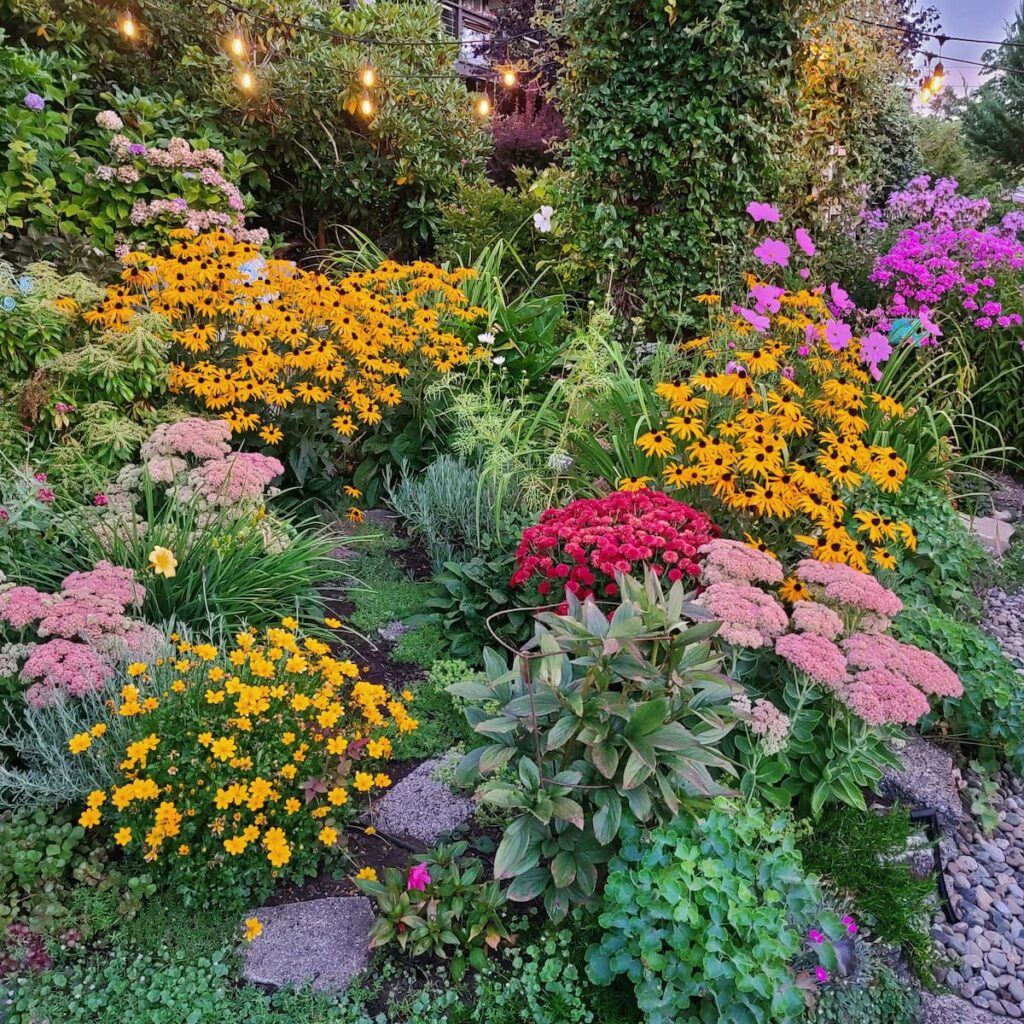
Final Thoughts for August Gardening Tasks
August is a busy month for Pacific Northwest gardens. With the right care, your garden can flourish through the summer and into early fall.
Keep an eye on water needs during hot weather, divide daylilies and other perennials, plan for the first frost and fall harvest, and take advantage of garden centers to add new plants to your collection.
By being aware of your garden’s needs in August, you’ll be rewarded with a beautiful and bountiful garden that continues to thrive the following year.
If you have any questions or additional suggestions, please share them in the comments below. And be sure to share this blog post link with anyone who may find these gardening tips helpful.
Until next time,
Happy Gardening

I’m a self-taught hobby gardener. Everything I share on my blog is my opinion and what has worked for me.
Follow Me for More Inspiration
Shop my Amazon Storefront, LTK sources, and my favorite home decor, garden, and lifestyle products. When you purchase from one of my links, I earn a small commission which, helps me continue sharing all the content you expect on my blog.
Be sure to follow me on Pinterest, Instagram, Facebook, TikTok and LIKEtoKNOW.it. Do you like gardening? Join my Facebook Gardening Tips & Tricks group.

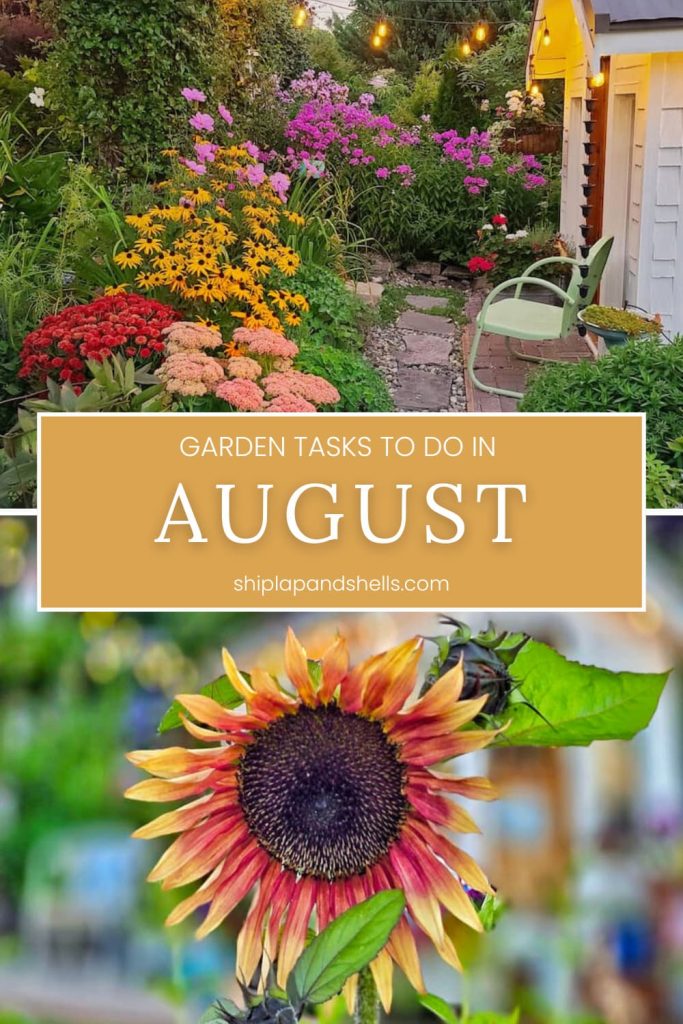
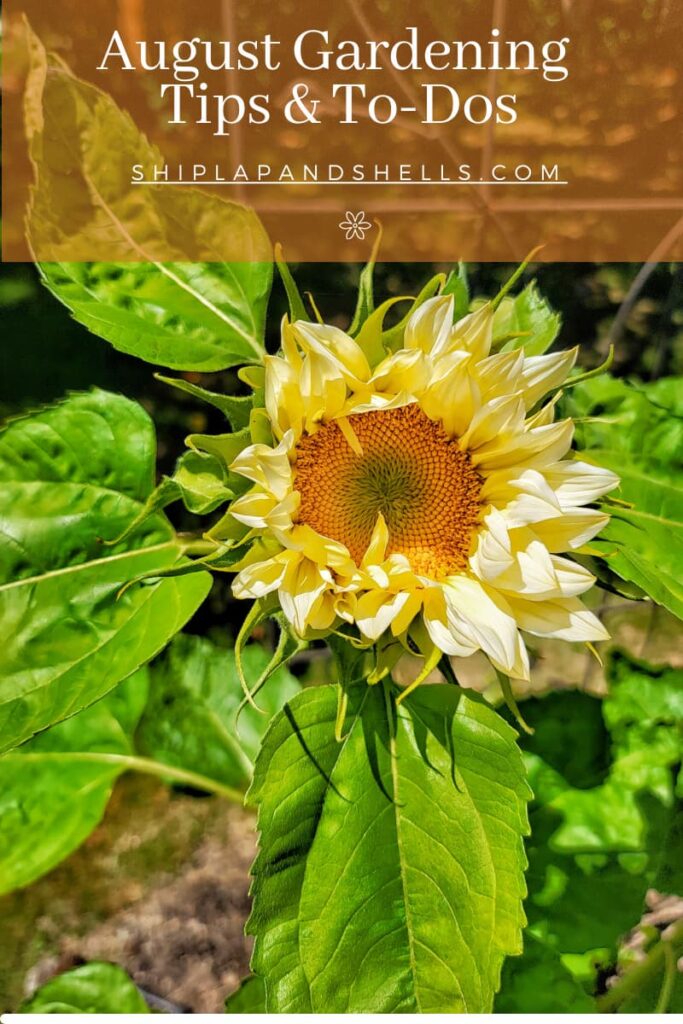

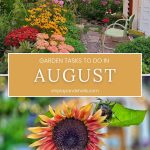
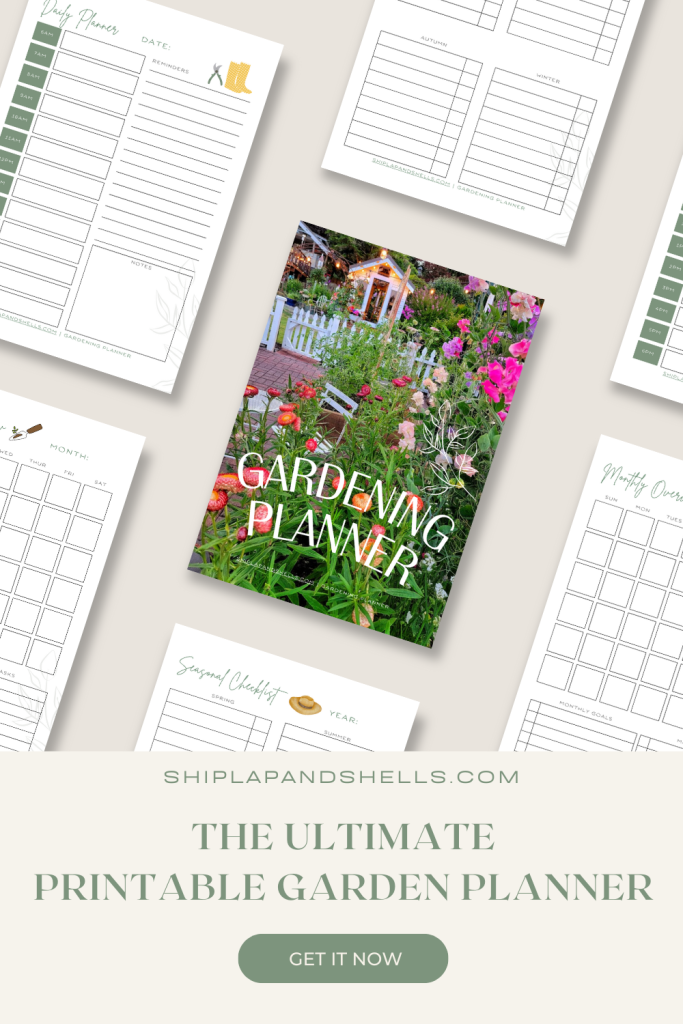
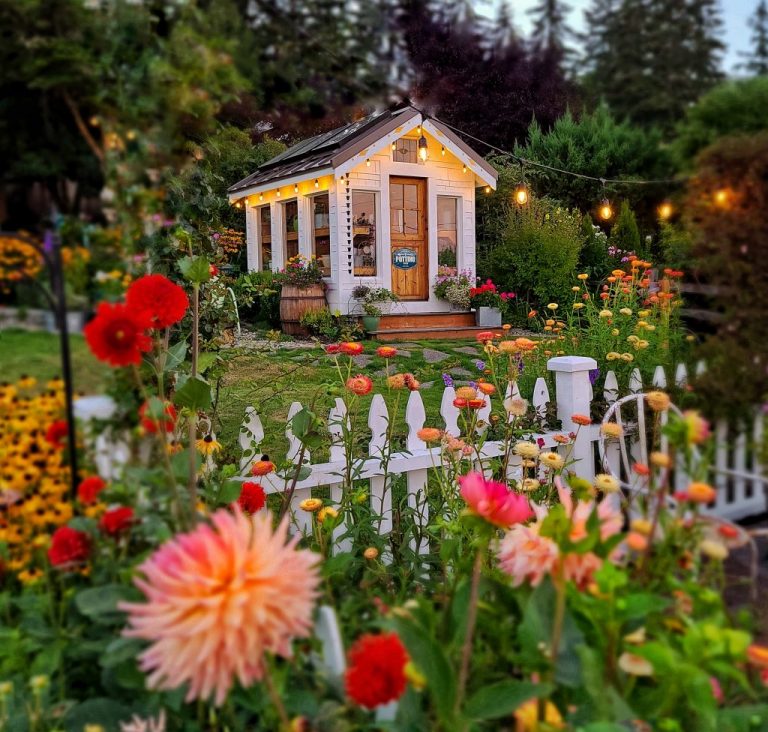
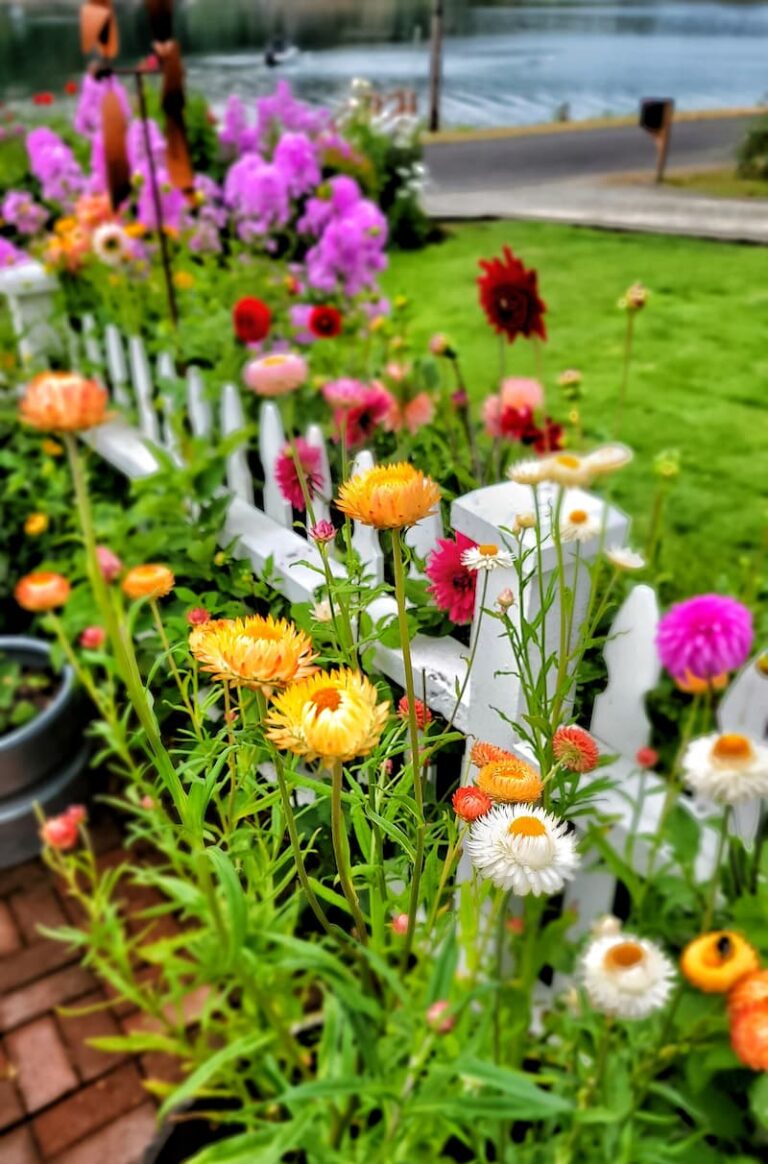
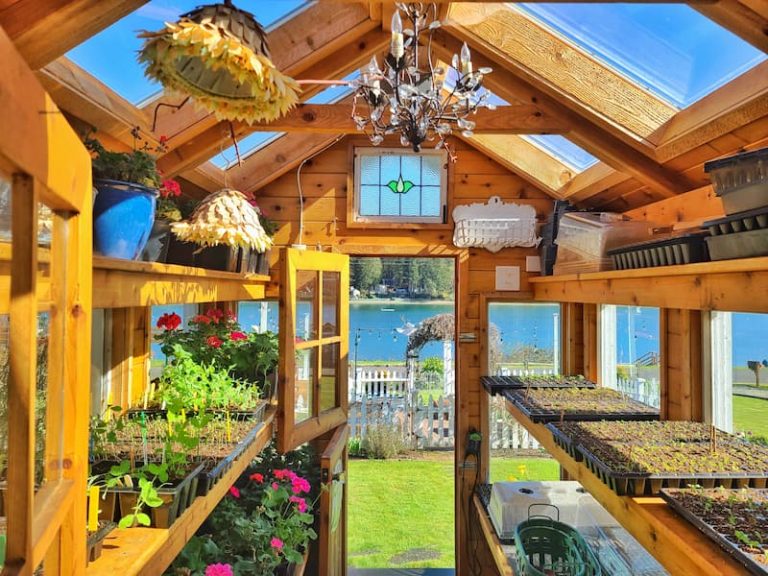
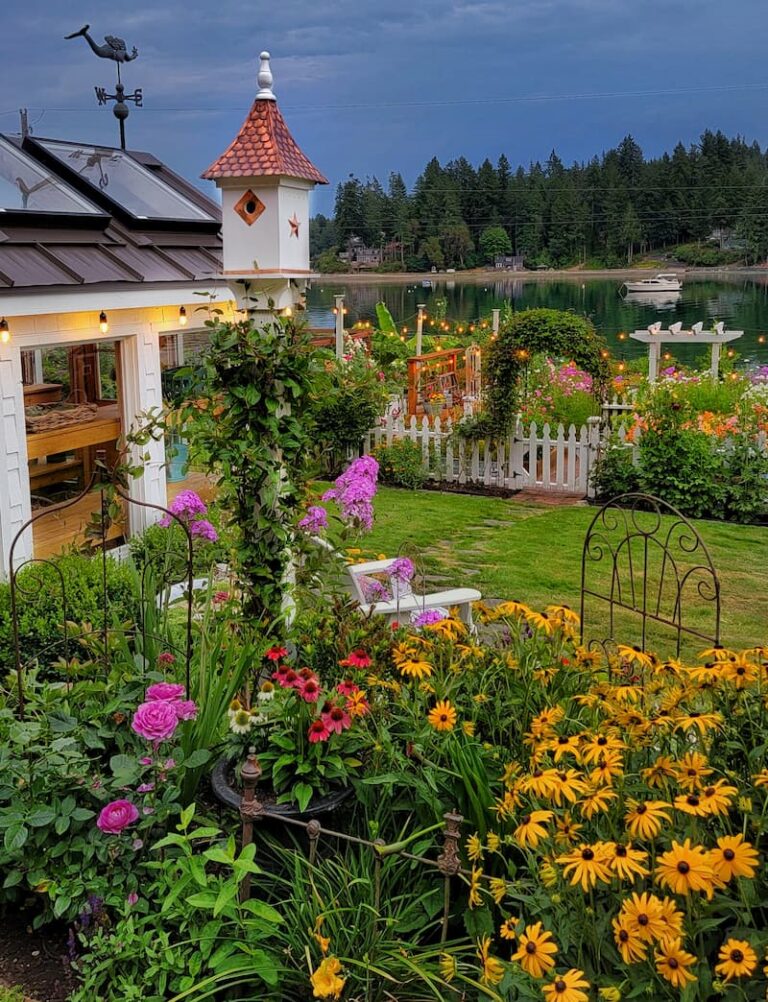
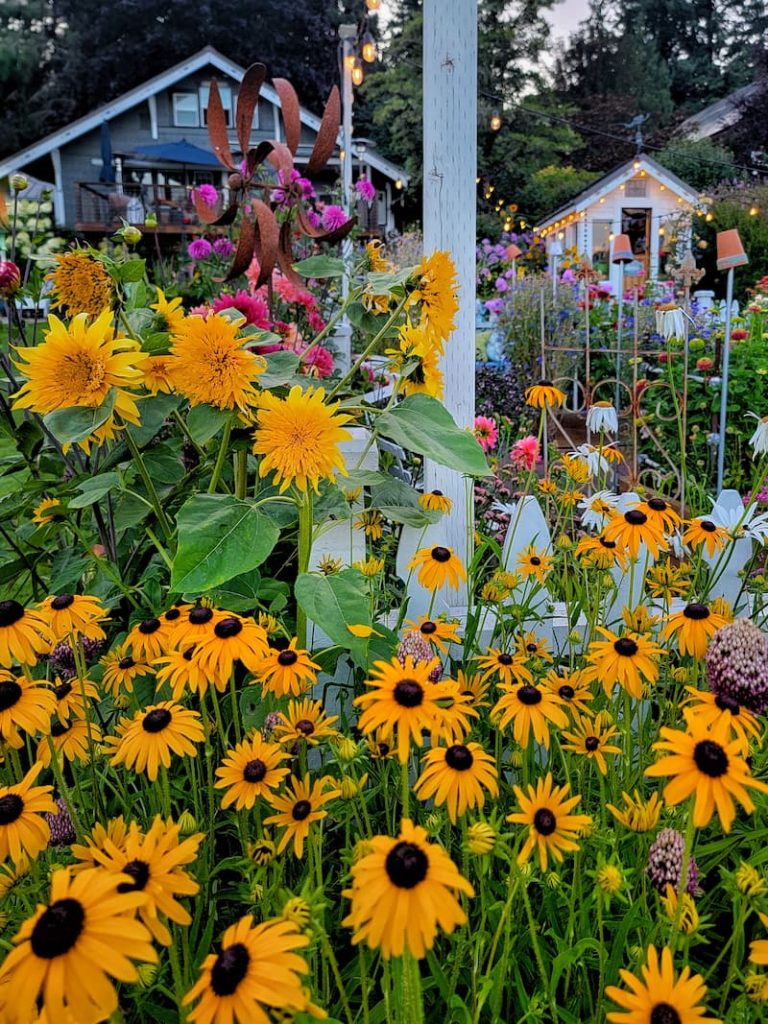
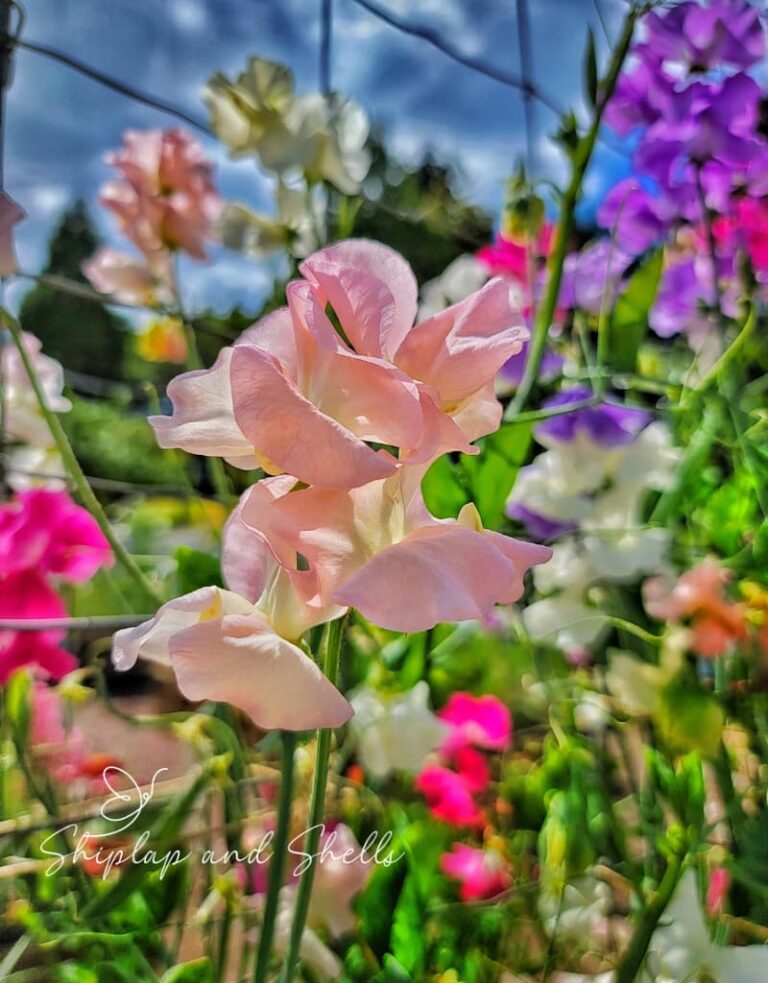
Always so beautiful! Such helpful tips and reminders, Kim! I am heading out to water now!
Thanks for the bulb reminder Kim! Beautiful flowers!
laura in Colorado
Yes, it’s so hot here too and not enough rain! My flowers are doing OK but my veggies are lousy this year…cold in June and now so hot and dry! My poor puny pepper plants are gonna fall over from the weight of the teeny peppers growing!!!